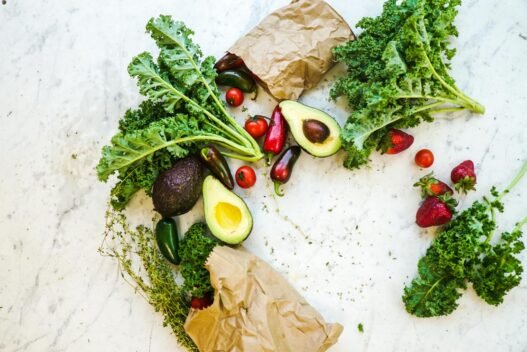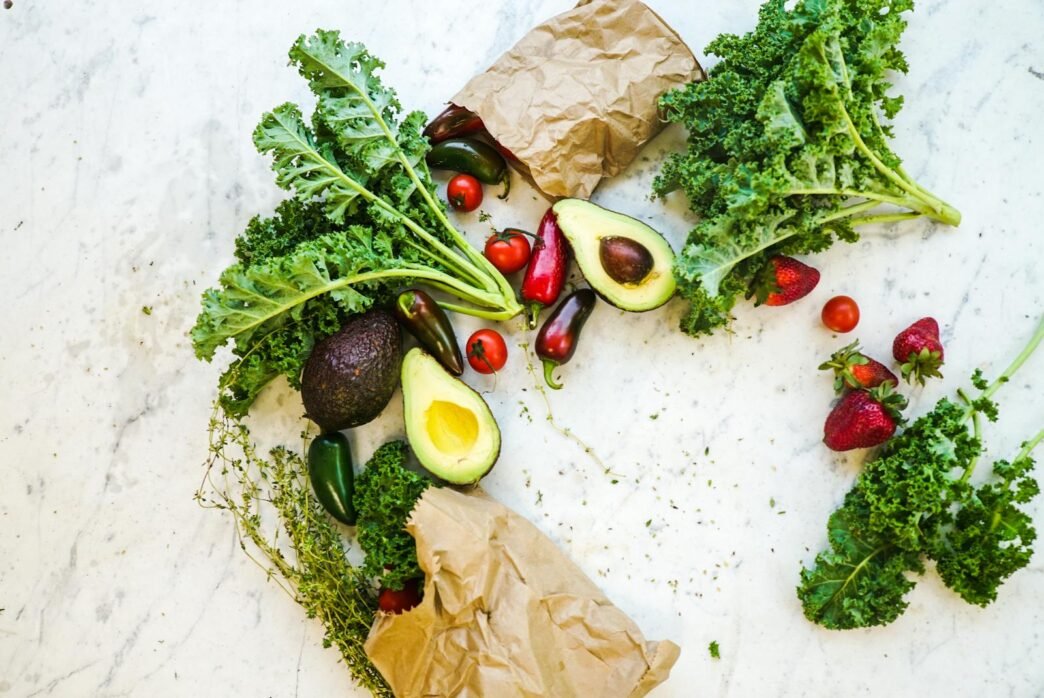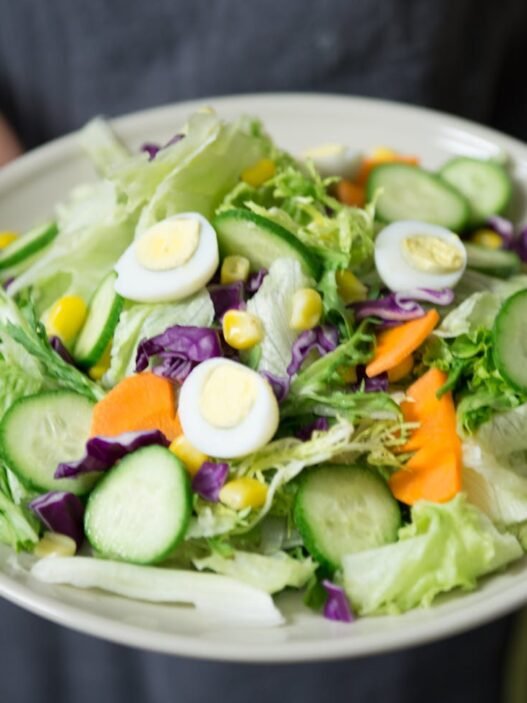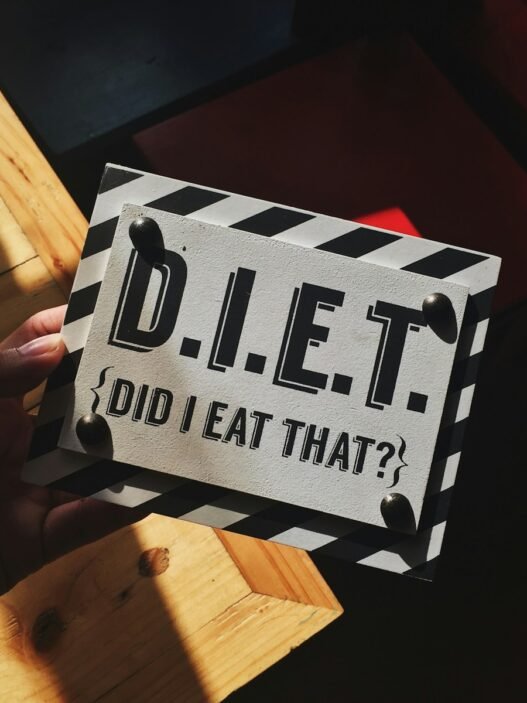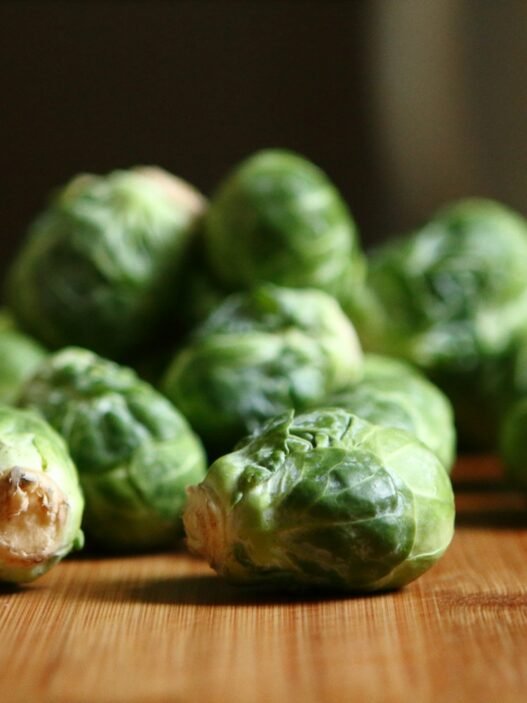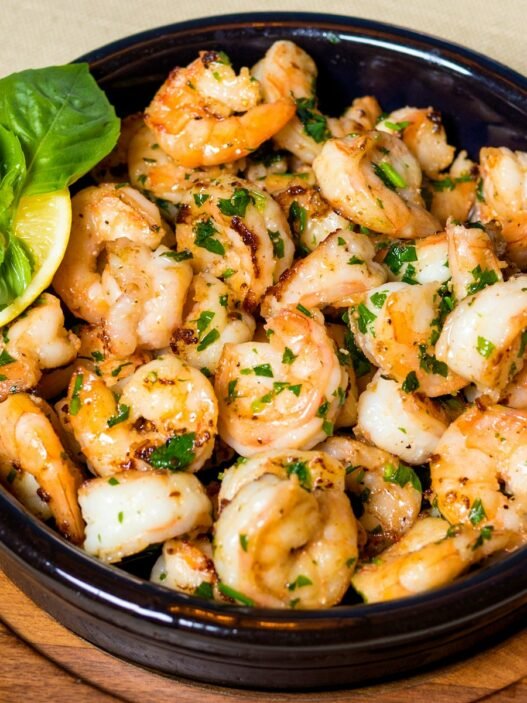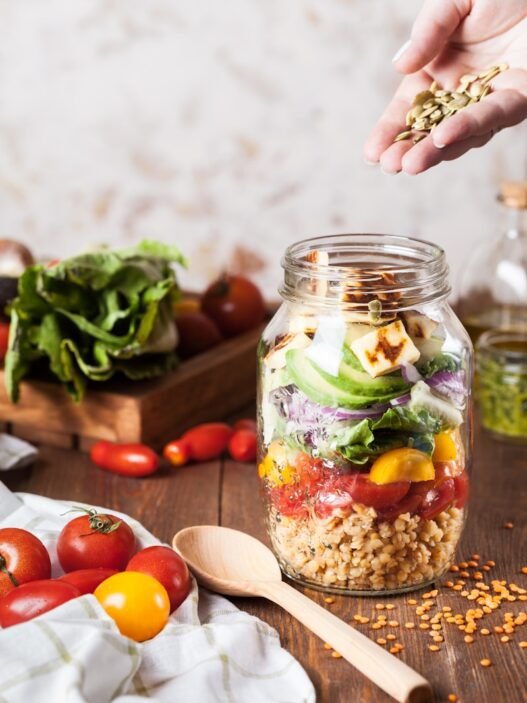Can you still reap the benefits of a keto diet without compromising your plant-based lifestyle? The answer is a resounding yes! A Vegetarian Keto Diet is not only possible, but it can also be a delicious and sustainable way to achieve your health goals.
In this guide, we’ll explore the ultimate list of vegetarian keto foods, providing you with everything you need to succeed on a plant-based keto diet. From high-fat, low-carb options to nutrient-dense vegetables and protein sources, this comprehensive list will help you navigate the unique challenges of combining keto with vegetarianism.
What is a Vegetarian Keto Diet?
A Vegetarian Keto Diet merges the principles of vegetarianism with the ketogenic diet, a high-fat, low-carb eating plan designed to put your body into a state of ketosis. In ketosis, your body burns fat for energy instead of carbohydrates. For vegetarians, this means finding the right balance of plant-based fats, proteins, and low-carb vegetables to maintain ketosis without relying on meat or fish.

The standard macronutrient breakdown for a vegetarian keto diet typically includes:
- 70-75% fat
- 20-25% protein
- 5-10% carbohydrates
This diet requires careful planning to ensure you get enough nutrients while staying within the keto guidelines. The following sections will break down the list of vegetarian keto foods that you can incorporate into your meals.
Plant-Based Fats: The Foundation of Vegetarian Keto
Fats are the cornerstone of the keto diet, providing the majority of your daily caloric intake. Here are the top plant-based fats to include in your vegetarian keto food list:
- Avocado and Avocado Oil
- Avocados are rich in monounsaturated fats, fiber, and essential nutrients like potassium. Avocado oil is perfect for cooking at high temperatures or drizzling over salads.
- Coconut Oil and Coconut Products
- Coconut oil is high in medium-chain triglycerides (MCTs), which are quickly converted into ketones by the liver. Coconut milk and unsweetened shredded coconut are also great additions.
- Olive Oil
- Olive oil is a heart-healthy fat that’s rich in antioxidants and monounsaturated fats. Use it for salad dressings, sautéing, or adding to cooked vegetables.
- Nuts and Nut Butters
- High-fat, low-carb nuts like macadamias, pecans, and almonds are excellent for snacking. Nut butters, especially those made from almonds or macadamias, add healthy fats to smoothies or as spreads.
- Seeds
- Seeds like chia, flax, pumpkin, and sunflower seeds are high in healthy fats and fiber. They can be added to smoothies, salads, or keto-friendly baked goods.
- MCT Oil
- Derived from coconut oil, MCT oil is a concentrated source of medium-chain triglycerides that boost ketone production. It’s often used in bulletproof coffee or added to smoothies.
Low-Carb Vegetarian Proteins: Essential for Muscle Maintenance
Protein is crucial for muscle maintenance and overall health. However, on a vegetarian keto diet, protein sources must be low in carbs. Here are the best vegetarian keto protein options:
- Tofu
- Tofu is a versatile soy product that’s low in carbs and high in protein. It can be grilled, stir-fried, or added to soups and salads.
- Tempeh
- Tempeh is another soy-based protein that’s slightly higher in carbs but also high in fiber, making it keto-friendly. It has a firm texture and a nutty flavor, making it great for stir-fries and salads.
- Seitan
- Made from wheat gluten, seitan is a low-carb, high-protein meat substitute. It’s ideal for those who are not gluten-sensitive and can be used in a variety of dishes.
- Eggs
- Eggs are a complete source of protein, containing all the essential amino acids. They are also low in carbs, making them an excellent choice for vegetarian keto.
- Full-Fat Dairy
- Include full-fat plain Greek yogurt, cottage cheese, and hard cheeses like cheddar, gouda, and mozzarella. These are rich in protein and fats while being low in carbs.
Low-Carb Vegetables: Nutrient-Dense and Keto-Friendly
Vegetables are an essential part of any diet, providing vitamins, minerals, and fiber. On a vegetarian keto diet, focus on low-carb, non-starchy vegetables:
- Leafy Greens
- Spinach, kale, arugula, and lettuce are low in carbs and high in nutrients like iron, calcium, and vitamins A and C.
- Cruciferous Vegetables
- Broccoli, cauliflower, Brussels sprouts, and cabbage are packed with fiber and antioxidants while being low in carbs.
- Zucchini and Summer Squash
- Zucchini can be spiralized into noodles or added to stir-fries, while summer squash is great for grilling or roasting.
- Mushrooms
- Mushrooms are low in carbs and provide a rich, umami flavor that enhances soups, stews, and sautés.
- Bell Peppers
- While slightly higher in carbs than other vegetables, bell peppers can be enjoyed in moderation. They are rich in vitamins A and C.
- Asparagus
- Asparagus is low in carbs and high in fiber, making it a perfect addition to any vegetarian keto meal.
Berries: Low-Carb Fruits for a Sweet Touch
While most fruits are too high in carbs for keto, some berries can be enjoyed in moderation due to their high fiber content:
- Strawberries
- Strawberries are relatively low in carbs and can be enjoyed fresh or added to keto-friendly desserts.
- Raspberries
- Raspberries are high in fiber and low in sugar, making them a great choice for a sweet treat on a keto diet.
- Blackberries
- Like raspberries, blackberries are low in net carbs and high in antioxidants, perfect for adding to smoothies or eating on their own.
Dairy Products: Rich in Fat and Flavor
Dairy products can be a valuable source of fat and protein on a vegetarian keto diet, as long as you choose full-fat options:
- Full-Fat Cheese
- Hard cheeses like cheddar, gouda, and Parmesan are high in fat and low in carbs. They can be used in cooking, as toppings, or as snacks.
- Plain Greek Yogurt
- Opt for full-fat, unsweetened Greek yogurt. It’s rich in protein and fat, making it a perfect base for keto-friendly breakfast bowls.
- Cottage Cheese
- Full-fat cottage cheese is another protein-rich option that can be enjoyed as a snack or added to salads.
- Heavy Cream
- Heavy cream is ideal for adding richness to sauces, soups, or keto-friendly desserts.
Foods to Avoid on a Vegetarian Keto Diet
While the focus is on what you can eat, it’s equally important to know which foods to avoid to maintain ketosis:
- Legumes
- Beans, lentils, and chickpeas are high in carbs and should be avoided, even though they are excellent sources of plant-based protein in a standard vegetarian diet.
- Grains
- All grains, including wheat, rice, oats, quinoa, and corn, are too high in carbs for a keto diet.
- Starchy Vegetables
- Potatoes, sweet potatoes, and other starchy vegetables are not suitable for keto due to their high carbohydrate content.
- Most Fruits
- Aside from berries, most fruits like bananas, apples, and oranges are too high in sugar and carbs for a keto diet.
- Sugar and Sweetened Foods
- Avoid all forms of sugar, including honey, maple syrup, and agave, as well as processed foods with added sugars.
Tips for Success on a Vegetarian Keto Diet
Following a vegetarian keto diet requires careful planning and attention to detail. Here are some tips to help you succeed:
- Plan Your Meals
- Planning your meals in advance ensures that you meet your macronutrient goals and avoid high-carb foods.
- Stay Hydrated
- Drinking plenty of water is essential, especially when starting keto, to prevent dehydration and support digestion.
- Monitor Your Carb Intake
- Keep track of your daily carb intake to ensure you stay within the keto limits. Apps like MyFitnessPal can be helpful.
- Incorporate Supplements
- Consider supplements for nutrients that are harder to obtain on a vegetarian keto diet, such as vitamin B12, iron, and omega-3 fatty acids.
- Get Creative in the Kitchen
- Experiment with new recipes and ingredients to keep your meals interesting and satisfying.
The Bottom Line
Adopting a vegetarian keto diet can be a highly effective way to combine the health benefits of ketosis with a plant-based lifestyle. By focusing on the right balance of plant-based fats, proteins, and low-carb vegetables, you can enjoy a diverse and nutritious diet that supports your health goals.

This list of vegetarian keto foods provides a comprehensive guide to what you can eat while staying true to your vegetarian principles. With careful planning and a bit of creativity, you can thrive on a vegetarian keto diet and enjoy the best of both worlds.










